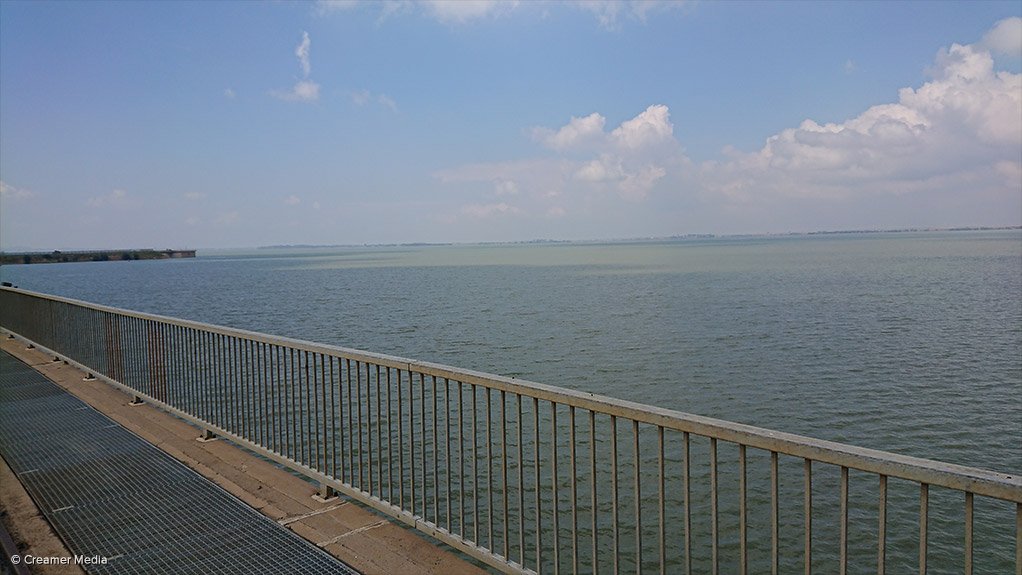South Africa’s struggling water sector can learn from its peers


Private Sector Participation in Water
The Vaal dam
Photo by Creamer Media's Marleny Arnoldi
Solving South Africa’s water challenges demands multifaceted responses, with private sector participation, good governance and technology all having critical roles in ensuring the country’s future water security.
This is a portion of what emerged from a Creamer Media webinar, held on Wednesday, where panelists discussed private sector participation in water.
Facilitated by International Finance Corporation transaction and public-private partnership (PPP) advisory unit water sector lead Nico Saporiti, the panel included PPP Training Online certified PPP professional Andre Kruger; Xylem Africa strategy and marketing manager Chetan Mistry; and eThekwini Department of Water and Sanitation commercial and business senior manager Dhevan Govender.
Kruger said that, amid the need to fix governance and improve long-term plans and execution, particularly long-term financial, engineering and asset management planning, there was a need to consider that certain water projects may need to be developed as PPPs, and South Africa could learn from PPP successes and solutions generated across Africa.
The world is seemingly actively making use of PPP procurement methodologies to procure solutions in the water space, he said, and across Africa, many countries were undertaking feasibility studies to actively become involved in PPPs.
There have been many water-focused PPPs in Kenya, Morocco, Algeria, Tunisia and Egypt, besides others, with various other African countries, including Angola, Mozambique and Botswana, considering PPPs to solve water challenges.
Govender added that while PPPs would not be the answer for all projects and was not one-size-fits-all, they could play a valuable role in solving some of South Africa’s most pressing water challenges in a viable way, pointing to the success of the landmark Durban water reuse project, in eThekwini, over the past two decades.
Through partnerships between the public and private sectors, new projects can be developed successfully, and the Durban water recycling PPP is an exemplary example of a win-win project, he said, explaining that the PPP partner was responsible for designing, building, operating and maintaining the plant, while the municipality was able to concentrate on its core function of mainly water distribution.
With the view that PPPs could be the best vehicle for certain projects, including large infrastructure projects such as water and wastewater treatment plants, eThekwini is embarking on new PPPs, with five registered with National Treasury at a value of R10-billion.
“PPPs could make sense as a procurement solution,” added Saporiti, explaining that it transferred risks, including operational, technological, construction, staff and cost risk.
While PPPs can fill skills, resources and technology gaps and the private sector is often more equipped to deploy projects more cost-effectively, Govender warns that these projects need to be mindful of socioeconomic requirements, and not only focus on the revenue side.
Further, technology and the associated skills are critical components that need to be a part of the strategy, Mistry said.
With substantial technologies and solutions available, operations could, for example, account for every drop of water, monitor water systems to ensure uptime, ensure quality water output, enable accurate billing, mitigate nonrevenue water, reduce operating costs, enhance efficiencies and modernise as quickly as possible, besides others.
In that context, technology plays a big role, as the utility, and the water network, can be managed as best as possible.
There is a lot of opportunity, he said, including integrating technologies to help predict. manage and alleviate some of the challenges related to climate change and disasters, for example.
The management and operation of these technologies requires skills and there is a need to review how people can be upskilled to understand, for example, the data that is produced and how to translate that data into meaningful operational decisions.
“In this environment, it is not only the technology that we [deploy] but also the skills that we bring into this. Technology is bringing all of this into play, but it has to be harmonised with all the other components that are there as well. Not only technology on its own.”
Comments
Press Office
Announcements
What's On
Subscribe to improve your user experience...
Option 1 (equivalent of R125 a month):
Receive a weekly copy of Creamer Media's Engineering News & Mining Weekly magazine
(print copy for those in South Africa and e-magazine for those outside of South Africa)
Receive daily email newsletters
Access to full search results
Access archive of magazine back copies
Access to Projects in Progress
Access to ONE Research Report of your choice in PDF format
Option 2 (equivalent of R375 a month):
All benefits from Option 1
PLUS
Access to Creamer Media's Research Channel Africa for ALL Research Reports, in PDF format, on various industrial and mining sectors
including Electricity; Water; Energy Transition; Hydrogen; Roads, Rail and Ports; Coal; Gold; Platinum; Battery Metals; etc.
Already a subscriber?
Forgotten your password?
Receive weekly copy of Creamer Media's Engineering News & Mining Weekly magazine (print copy for those in South Africa and e-magazine for those outside of South Africa)
➕
Recieve daily email newsletters
➕
Access to full search results
➕
Access archive of magazine back copies
➕
Access to Projects in Progress
➕
Access to ONE Research Report of your choice in PDF format
RESEARCH CHANNEL AFRICA
R4500 (equivalent of R375 a month)
SUBSCRIBEAll benefits from Option 1
➕
Access to Creamer Media's Research Channel Africa for ALL Research Reports on various industrial and mining sectors, in PDF format, including on:
Electricity
➕
Water
➕
Energy Transition
➕
Hydrogen
➕
Roads, Rail and Ports
➕
Coal
➕
Gold
➕
Platinum
➕
Battery Metals
➕
etc.
Receive all benefits from Option 1 or Option 2 delivered to numerous people at your company
➕
Multiple User names and Passwords for simultaneous log-ins
➕
Intranet integration access to all in your organisation



















